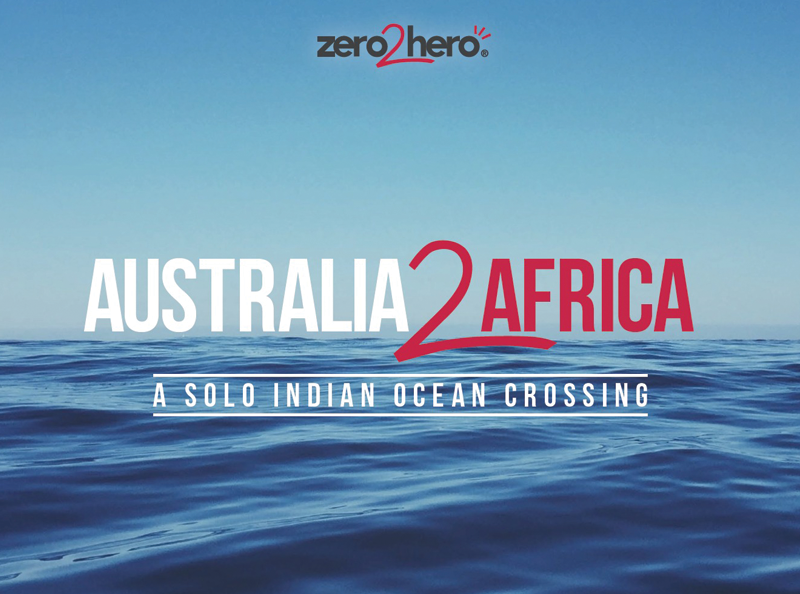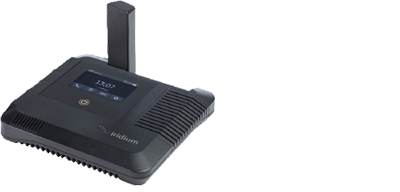Case Studies | Maritime
Rob's Row
Staying connected while crossing oceans - a solo, non-stop rowing expedition from Western Australia to Africa.
The Challenge
To explore communication options, not only for his safety, but also to allow him to remain in touch with his shore crew, family, media and to allow Rob to update his blog and send and receive emails with images and videos for social media.
The Solution
Pivotel provided Rob with two compact devices, an Iridium GO! which would be paired to his standard smartphone and used predominantly for voice calls and SMS. Plus the recently released Iridium GO! exec which would not only enable voice calls and SMS but also allowed him to send emails, update his blog and share images and videos using his smart device.


“ Being able to communicate with my shore managerwhilst underway was critical. ”
Rob Barton
The Challenge
After a long and successful career in the corporate world, Rob Barton decided he needed a fresh challenge, an adventure where he could immerse himself in a totally different kind of environment.
With a family history in sailing that had seen his parents sail around the world, and his grandfather sail across the Atlantic more than twenty times, Rob knew that his adventure was going to be ocean-based but was looking for an alternative to sailing. This search led Rob to YouTube where he came across Sarah Outen, a rower who had rowed from Fremantle to Mauritius back in 2009. After seeing her mini-documentary, and reading her book, Rob was inspired and turned his attention to ocean rowing, he quickly discovered that nobody had ever rowed from mainland Australia to mainland Africa, and figured if he was going to do it, he might as well go all the way.
Rob began working through the route and partnered with the University of Western Australia and their oceanography team who assigned two PhD candidates and an undergraduate who built a data model based on the last 20 years of historical weather data and conditions and worked out when and where to depart from. He then set about preparing for the biggest physical challenge of his life by securing an ocean rowing boat. After a local search did not turn up any viable vessels, he shifted his focus overseas and came across a boat that had previously completed two Atlantic Crossings. Next, Rob began working with a fitness coach to bulk up and increase his strength.
“I was kayaking with my local Surf club around five days a week and rowing once or twice a week. I did a bit more rowing through the winter, but once the summer came along, I was on the water surf ski paddling. I also ate a lot, my normal weight sits at around 75 kilograms, I bulked up to 98 kilograms because I knew that people who do these types of crossings typically lose between 15 and 25 kilograms,” said Rob.
With the boat acquired and the training in progress Rob’s attention turned to the mental side of things, focusing on visualisation techniques and preparing for the long period of time ahead where he would be alone. This led Rob to make contact with Pivotel to explore communication options, not only for his safety, but also to allow him to remain in touch with his shore crew who would call the shots while he was on the water. Rob also wanted to be able to speak with his family, the media, update his blog and send and receive emails with images and videos for social media.
The Adventure
Given the challenging nature of Rob’s adventure, the fact he had various communication requirements, where he was travelling to, and taking into account the size of the vessel, Pivotel provided Rob with two compact devices to ensure he had a comprehensive communication plan, including a backup should a device become lost or damaged. The first device was an Iridium GO! which would be paired to his standard smartphone and used predominantly for voice calls and SMS. The second was the recently released Iridium GO! exec which would not only enable voice calls and SMS but also allowed him to send emails, update his blog and share images and videos using his smart device.
On Wednesday the 26th of April 2023, Rob set off from the planned departure point of Carnarvon, Western Australia with the target of next stepping off the boat in Tanga, Tanzania. Despite many years of ocean sailing and never getting seasick, Rob began to experience seasickness on the very first day. Over the next couple of days, he still could not eat anything and discovered the boat was leaking in heavy seas with waves consistently breaking over the boat’s cockpit. That saw Rob call his shore manager Neil using his Iridium GO! where he told him he was going to turn around and come back.
“I was feeling pretty wretched, I actually spent a couple of hours heading back towards Exmouth, and it gave me time to reflect about what it was that I've taken on and the reasons for doing it. My daughter had attempted to take her own life three years ago and while I'm very pleased she didn't succeed, it was quite an emotional experience to go through and that's why I chose to raise money for zero2hero. It gave me time to think about my daughter and zero2hero, a charity that supports young people’s mental health and wellbeing, which was enough for me to persuade myself to turn around and carry on,” added Rob.
From that point on Rob was solely focused on achieving his goal of becoming the first person to complete a row from Australia to mainland Africa. Each day Rob communicated with his shore manager to ensure he was on track using the data model that had been prepared by the University of Western Australia and kept in touch with his support network back home.
“Every single day my shore manager would send me a text message with the details of the course to steer and the conditions. Two or three times a week we would also have a conversation. That was without a doubt the most important thing, just getting that feedback. I also sent messages back for the blog with the Iridium GO! exec and was able to send video as well, which was certainly useful for keeping people informed back at home. I also had some interviews with the media and kept in touch with my daughters,” explained Rob.
One of the biggest hurdles ended up occurring right at the end of the adventure when strong winds were taking Rob off course, meaning that he had to sit on sea anchor for a while in an attempt to stop the boat from getting pushed in the wrong direction.
“Eventually there became a point where if I didn't start rowing, I was going to end up with the current taking me, even if the wind didn't. I ended up rowing for about 51 out of 54 hours and that was an incredible physical challenge, but there really was no choice, it was either end up in Somalia or row like hell,” added Rob.
The Outcome
In an epic adventure that was expected to take 6 months, in just 86 days, Rob Barton rowed more than 8,000 kilometres and into the record books, becoming the first person to row solo, non-stop and unassisted from Australia to Africa as he reached Tanga, Tanzania.
“Being able to communicate with my shore manager whilst I was underway was critical, it meant I could get the position of the boat, call Neil and tell him my location which allowed him to plug it into the data model, look at the weather forecast for the next 10 days and it would work out the best route for me to take. That was really instrumental in getting me there as fast as I did,” explained Rob.
Throughout his journey, Rob also spent a lot of time speaking to his father who was following the journey closely having previously sailed across the Indian Ocean, albeit 20 or 30 years ago.
“In all honesty, I spoke to him more in three months than I had done in the previous 10 years and built more of a relationship with him than I probably ever had. He definitely thought I was a bit crazy, but he loved sharing the experience, he was plotting my position on a chart every day and doing the old paperwork stuff,” added Rob.
After rowing across the Indian Ocean and burning 5,500 to 6,500 calories a day and losing 15 kilograms in the process, Rob had intended to return to his business as a mortgage broker for at least another 5 years, but this adventure has changed those plans.
“I had a lot of time to think and a lot of it was thinking about what I was going to do next. Since returning I have sold my business and I’m going sailing. I've got a job lined up as a charter skipper on an expedition yacht that is going to be sailing the East Coast of Australia across the Pacific and down to Antarctica, so it’s going to be different. At some stage I'd really like to have a crack at sailing around Australia non-stop and trying to beat the world record currently held by another Pivotel supported adventurer, Lisa Blair,” said Rob.
The Hardware

Iridium GO!on the Iridium Network
Connect your smartphone and turn it into a satellite phone with global coverage.

Iridium GO! exec on the Iridium Network
Portable wireless access device for smartphones and laptops.
Ask a question
Do you want to know more about a Pivotel service plan, product or solution?
Ask our friendly Customer Care team here.
Find your local Pivotel Dealer
Did you know that we have a nationwide dealer network of over 160 dealers?
Find your local Pivotel critical communications expert here.